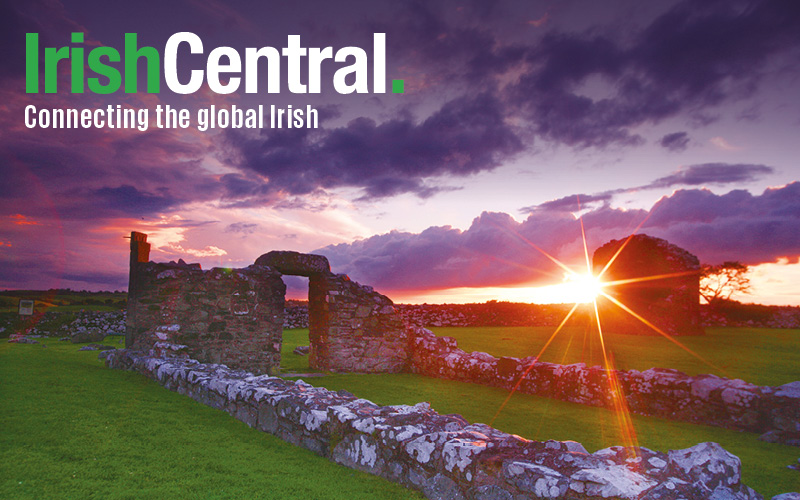Thirty-year-old notes from a May 1985 meeting beteween New York's Cardinal O'Connor and Taoiseach (Irish Prime Minister) Garret Fitzgerald capture the anger between the two over O'Connor's refusal condemn the Irish Republican Army without including others involved in the Northern Ireland conflict.
The notes have just been released under “the thirty year rule” that allows Irish cabinet papers to be released into the public domain.
The pair met at the Archdiocese headquarters on First Avenue in New York where a heated discussion took place as the Archbishop asked what he could do to help support efforts for resolution of the conflict in Northern Ireland.
Fitzgerald said it would be helpful if the Catholic bishops in the United States would issue an “unconditional condemnation of IRA violence.” O’Connor refused saying he had already denounced violence by all sides and would not exclude others involved in the violent conflict for fear of alienating his Irish American followers.
The context of this heated discussion was a homily given by O’Connor on St. Patrick’s Day, months earlier. The United Kingdom’s media had construed his message to mean that he considered the IRA campaign of violence as a “just war.” However, the Archbishop took exception to this interpenetration.
An extract of this homily was highlighted by the Department of the Taoiseach in advance of the meeting.
It reads:
“I reiterate and re-emphasize publicly what I have said repeatedly before: I cannot accept, support or encourage support of the violence in Ireland by whomever perpetrated it. And that includes both physical violence and moral violence.
“The violence of those who shed blood and engage in acts of terrorism, the violence of those who rob people of justice, deprive them of their birthright and inflict on them continuing indignities. I cannot and I will not condemn the legitimate struggle in Ireland for justice and human rights.”
During the New York meeting the Archbishop said he must “include in any such statement denunciation of British oppression in Northern Ireland,” TheJournal.ie reports.
A note written by an Irish government official states:
“Perhaps in time they would as a body come out with a statement, but they would be unable to say anything so one-sided as to denounce only the violence of the IRA. He could not afford to alienate himself from a large body of Irish Americans.”
Fitzgerald was “shocked” by the remarks, according to the government notes.
The notes state:
“The Taoiseach said that there is only one side to terrorism: the murder of ordinary individuals.”
The Irish leader said the government “is continually raising the excesses of the security forces with the British authorities.” He added that to compare the two would be “wrong.”
“It was wrong to equate what is done by security forces trying to maintain law and order with the violence of the bomb and bullet.”
According to the notes this discussion carried on for some time and Fitzgerald continued to emphasize the difference between the violence perpetrated by the IRA and British security forces.
The notes state:
“The Taoiseach said what we want is unambiguous condemnation of terrorism. The IRA’s aim is to establish a totalitarian state. They murder people.”
It is estimated that the British security services were responsible for 363 deaths in Northern Ireland between 1969 and 2001. The Provisional IRA was responsible for 1,823 deaths.
O’Connor continued to focus on his duty to follow his congregation, many of whom had “great feelings of resentment against the British.”
The notes show that O’Connor agreed to “renounce violence but simultaneously he will not be naive about the role Great Britain has played in the Troubles.”
It’s estimated that Loyalist paramilitaries were responsible for 1,027 deaths during the Troubles. Their actions were never mentioned in the meeting.
Fitzgerald is noted to have said that the Provisional IRA was the main reason for violence in Northern Ireland.
The record states:
The situation with regard to the north of Ireland is one of proportion and identifying the primary source of violence. The IRA is involved in a genocidal campaign which does not equate with the excesses of the security forces in Northern Ireland, however deplorable the latter may be. To equate the two would be a moral aberration.”
In his autobiography Fitzgerald admitted that this “was probably the most contentious meeting I had with anyone outside Ireland during the course of my years as Minister for Foreign Affairs and Taoiseach.
“One of our officials who accompanied me remarked later that he had never previously attended a meeting like it.”
In 2012 at the Dr Garret FitzGerald Memorial Lecture at University College Cork former secretary general at the Department of Foreign Affairs Seán Donlon commented on the former Taoiseach’s strained relationship with the Catholic Church and made reference to the New York meeting.
The Irish Times reported that Donlon recalled attending the meeting when Cardinal O'Connor “suggested that a good Catholic could see that the Provisional IRA campaign could well be said to constitute a just war.”




Comments